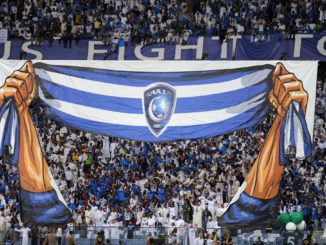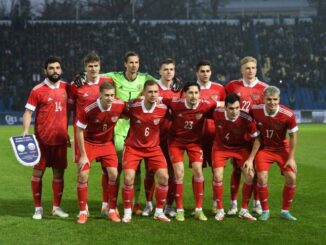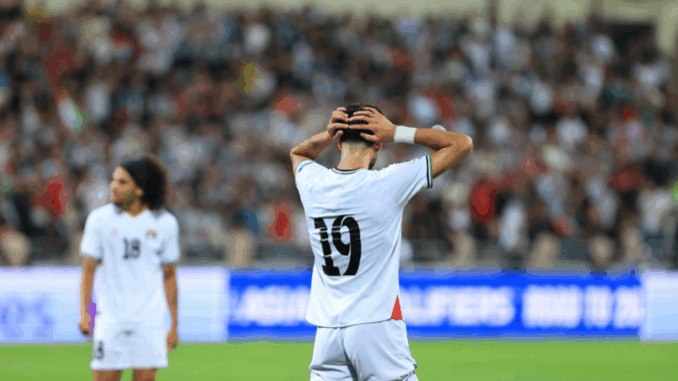
As debate rages as to whether the referee was right to award a controversial penalty to Oman in the last minute of the game, there is a much more uncomfortable truth Palestine must confront.
This loss, or draw as it was, was largely of their own making.
Leading 1-0 when Oman were reduced to ten men with the dismissal of Harib Al-Saadi with 20 minutes remaining, they should have been able to see the game out, secure their place in the Fourth Round and keep their World Cup dream alive.
Whether it was the pressure of the moment, or an expectation that it would just happen after they had the man advantage, they didn’t handle the game state well.
Over the final 20 minutes, you would think it was Oman that had the man advantage. Palestine were too happy and too willing to retreat, barely posing a threat on the counter when they did win the ball back.
It was a moment that required experienced and calm heads, to value possession of the ball and to take some of the sting out of the game.
None of those things happened.

Palestine played rushed and incomposed, which played into the hands of Oman as they desperately pushed to keep their own World Cup dream alive.
Go back and watch the moments before the penalty is awarded and you’ll see Adam Kaied, who had been impressive until that point and provided the assist for their opening goal, play an aimless pass out of defence straight to Thani Al-Rushadi.
From that, Oman float a harmless ball into the box before Kaied again aimlessly bombs the ball forward when he had time to take a touch and find a teammate. For a player with his experience and skill, who played 16 times in the Eredivise last season, the lack of composure was both surprising and concerning.
From the resulting play Zaid Qunbar went flying in needlessly on Ahmed Al-Khamisi, giving away a foul and earning a yellow card. Again, there was no threat when Al-Khamisi received the ball and cutting off his passing lanes would’ve been a better option than gifting then a free kick, forcing Oman either backwards or into a 50-50 option.
As Palestine’s defence retreated expecting a free kick into the box, Oman played it quickly and short and within two passes had the ball in the box where Ahmed Taha inadvertently tripped Muhsen Al-Ghassani, and the rest is history.
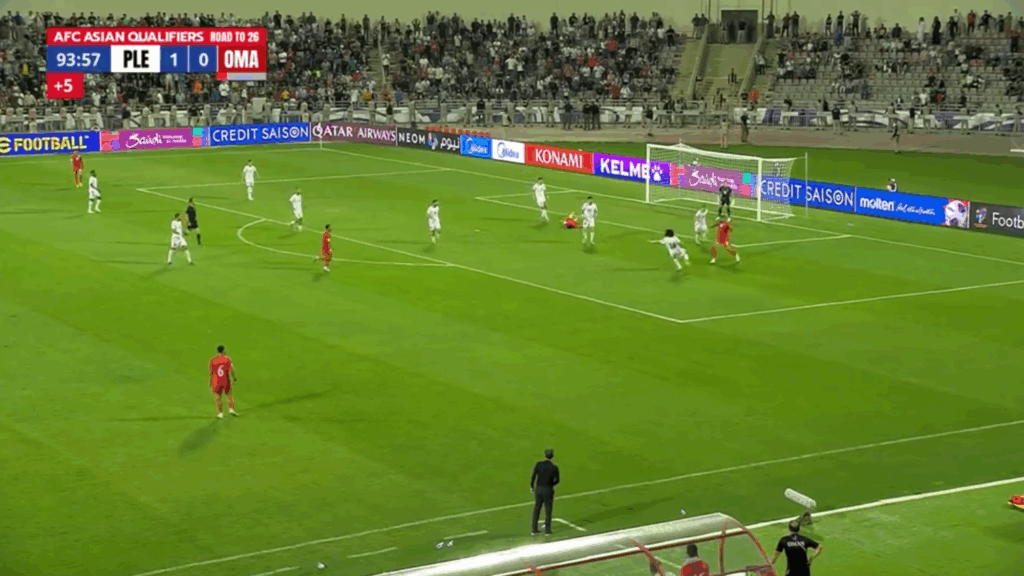
While Palestine can feel hard done by given how minimal the contact was, the first place any player or team should look is within and ask what they could have done better, and in the case of Palestine the answer to that questions is: plenty.
In the first half, the possession was largely equal, with Oman edging it 54 percent to 46 percent, while Palestine had the better of the chances with seven shots to Oman’s two.
But in the second, after Palestine had scored and even after Oman had a player sent off, it swung wildly in Oman’s favour – 67 to 33 percent – with Oman having ten shots to Palestine’s four.
While some of that is natural, with Oman chasing the game from the 49th minute, the sending off should have neutralised that somewhat had Palestine been able to wrestle back control of the game.
It was the cruelest and most heartbreaking way for Palestine to be eliminated. After they lost 3-1 to Jordan in the opening fixture of the March window, their hopes looked to be all but extinguished.
It would take winning all three of their remaining fixtures against Iraq, Kuwait and Oman to stand a chance and the fact they almost pulled it off should see anger dissipate for pride. It was a herculean effort to even get so close.
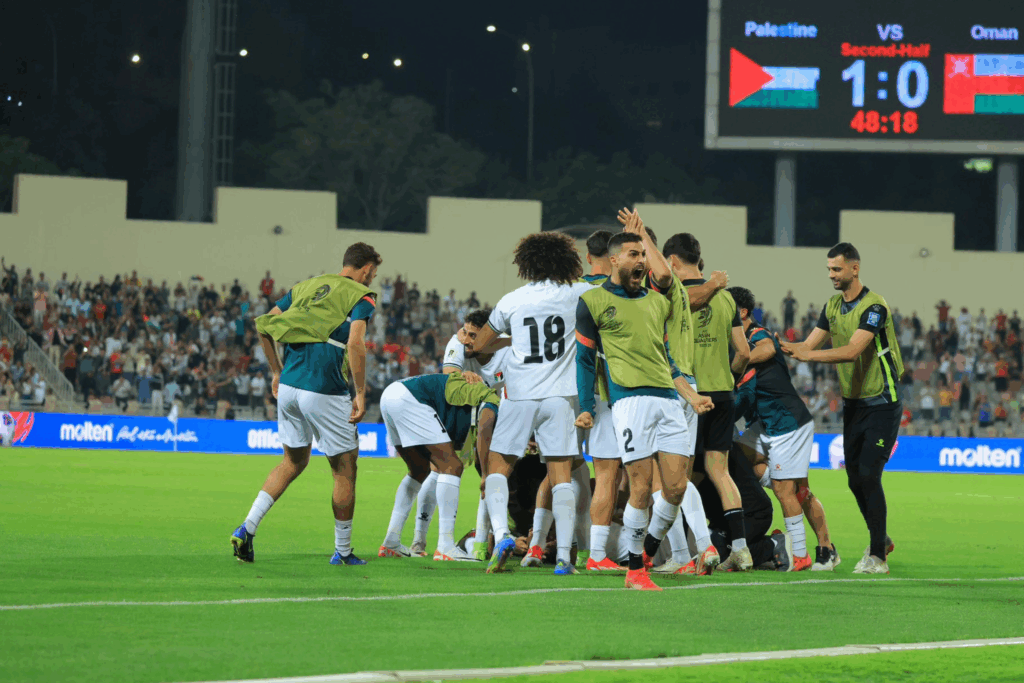
This is a team competing in the most horrific of circumstances, doing so while their country is in the midst of an unbearable and unimaginable genocide. Footballers have been killed. Family members have been killed. Every day brings with it its own torture. The football fields they once graced have been destroyed beyond all recognition.
It is an incomprehensible situation. The national team stood as a beacon of hope in the darkest times, a heavy burden to wear, but one they did with pride and passion. If there was one group of players who didn’t deserve this heartbreak, it is this Palestine team.
The disappointment will take years to disappear, but the pain they are feeling for losing a game of football is nothing compared to the daily suffering they’ve lived through for the past 20 months.
The team’s best player, Oday Dabbagh, said it best in a heartfelt social media post.
“To our beloved fans, to every Palestinian heart that beat with us…,” he wrote on Instagram.
“Last night, we gave everything. We fought with pride, we carried the hopes of a nation on our shoulders, and we stood united until the final second. But football, in all its beauty and heartbreak, had a different script.
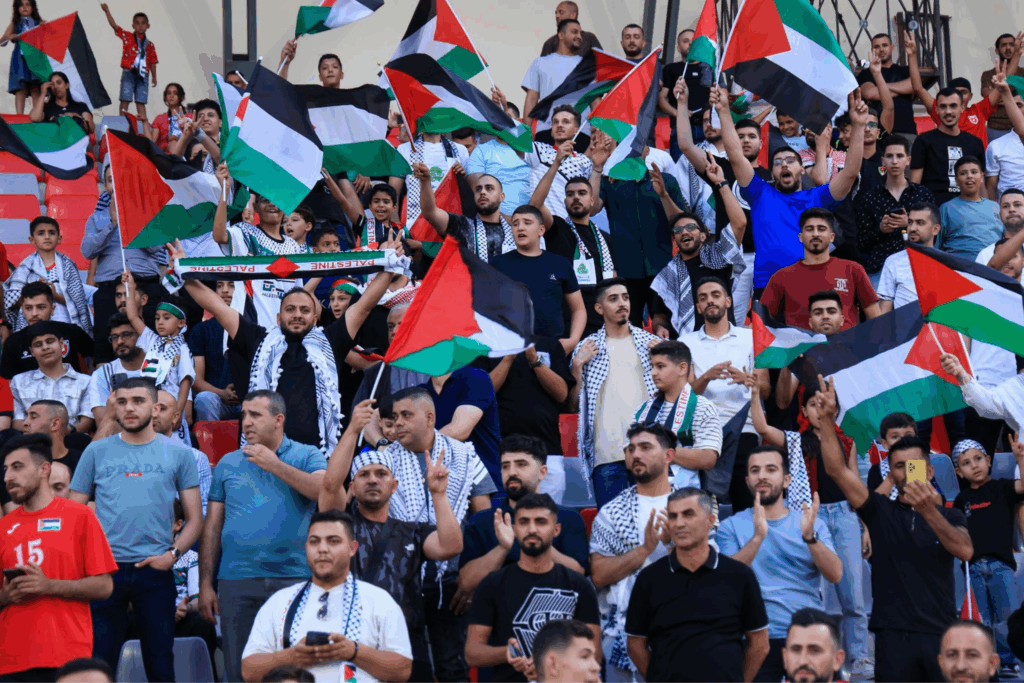
“A single moment took away a dream we’ve chased for years. The World Cup remains out of reach – for now.
“But this is not the end. This is just another page in our story – a story written with sacrifice, with passion, and with the unbreakable spirit of Palestine.
“To our brothers and sisters back home: Your support lit up the darkest moments. Your voices reached us from every corner of the world. You are our strength, our purpose, and our pride.
“To the team: We fell short – but we did not fail. We stood tall, we represented our people with honor, and we will rise again.
“This dream is only delayed, not denied. We are Palestine – and we never stop believing.”
Bill Shankly’s famous quote that football is more important than life and death couldn’t be less true. Their World Cup journey may have ended, but the real and bigger fight continues.
Photos: X/Palestine_fa



